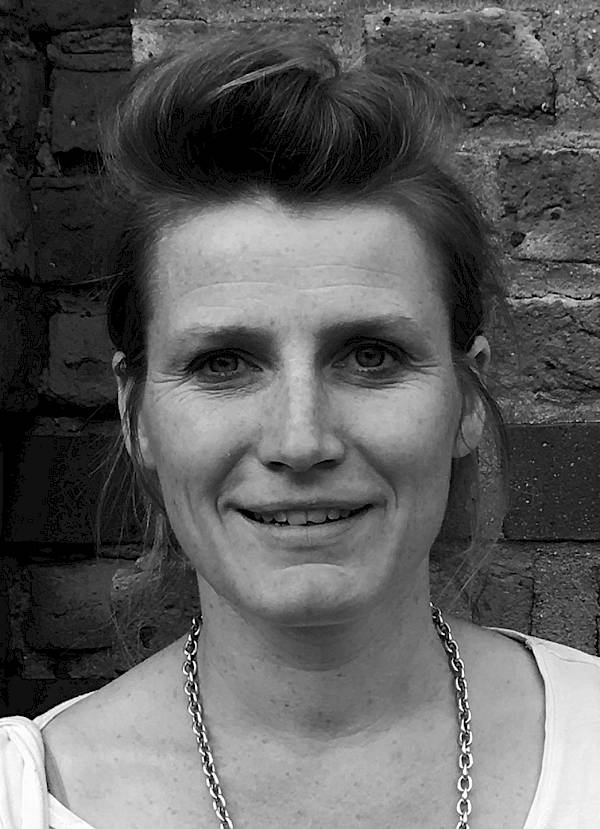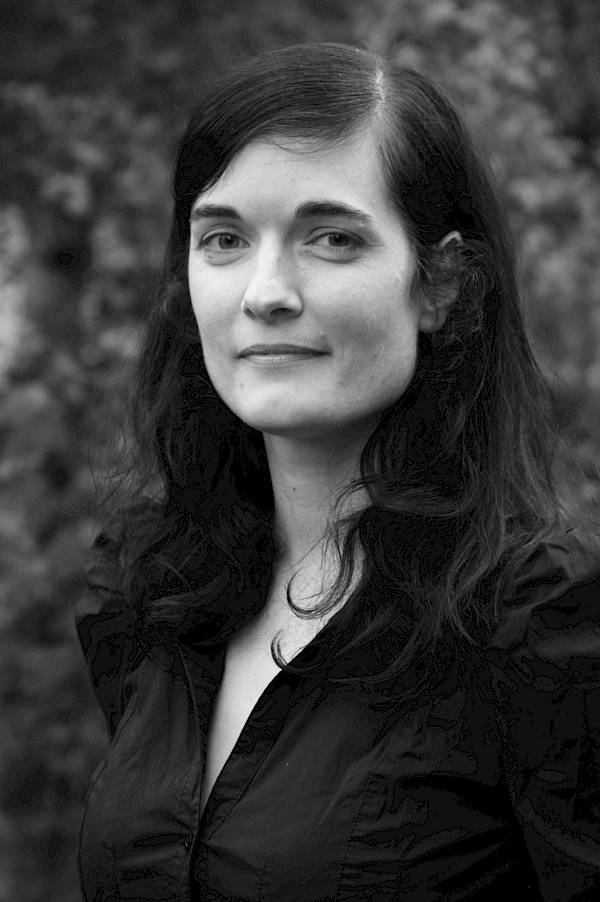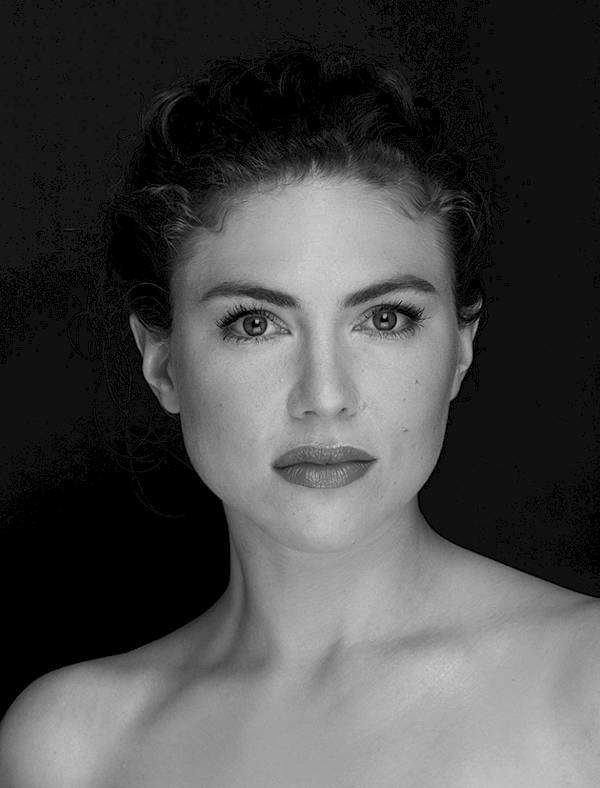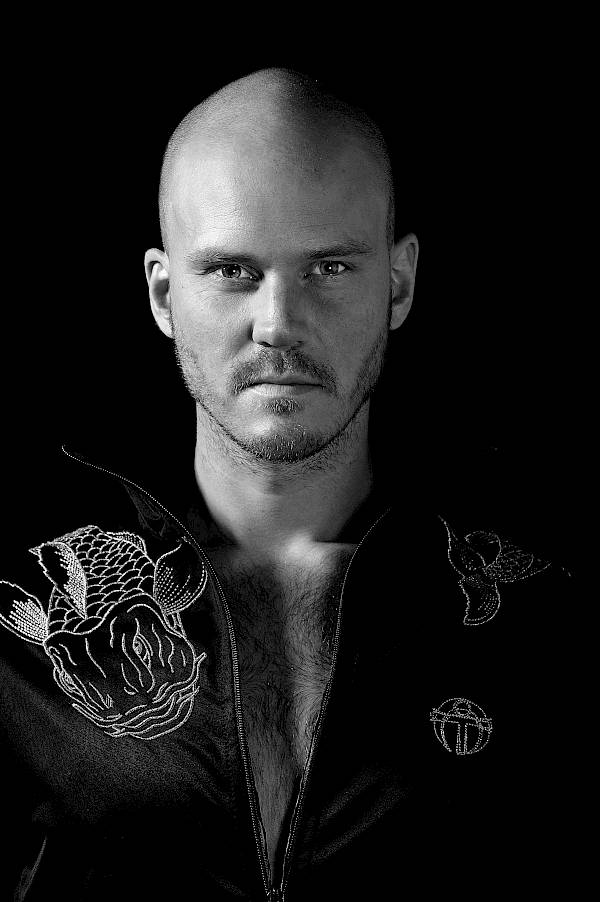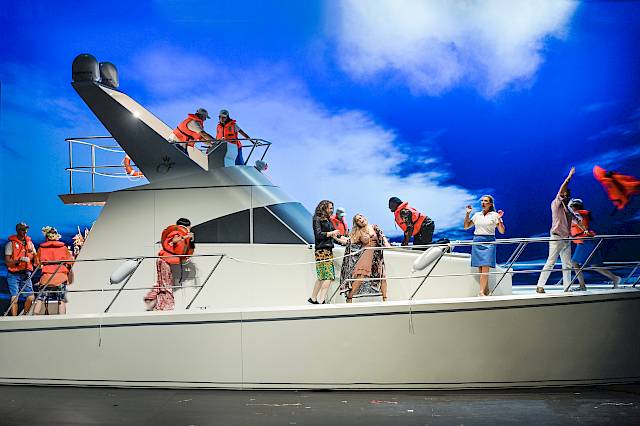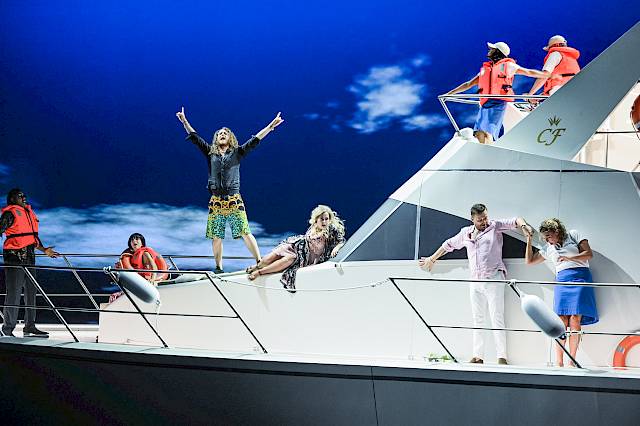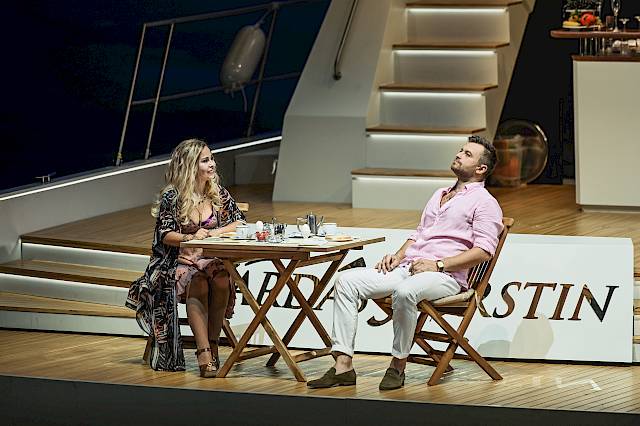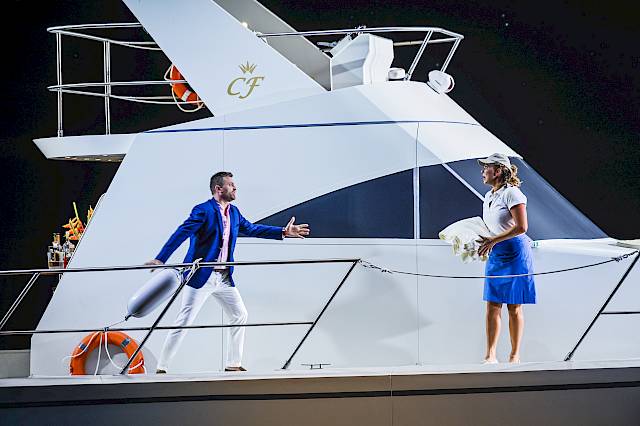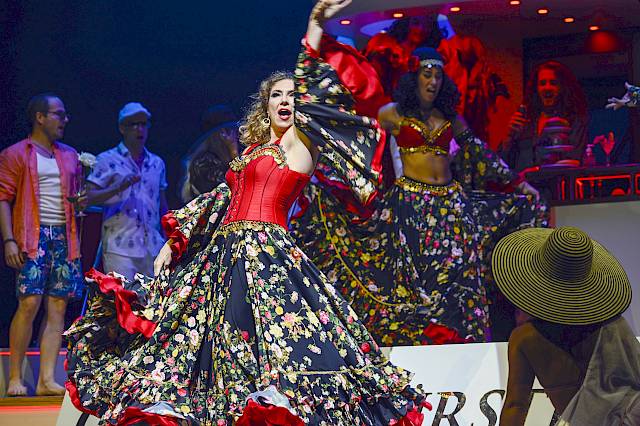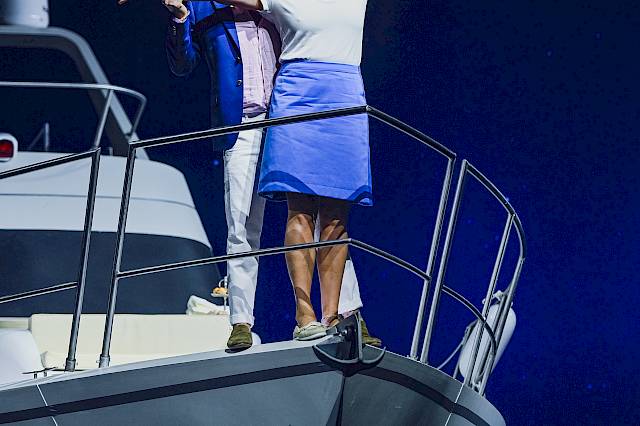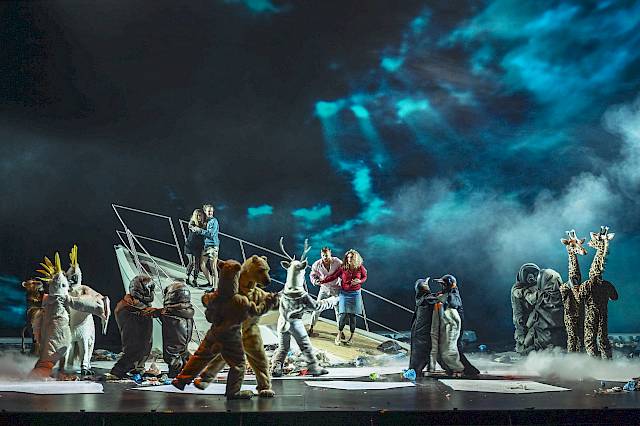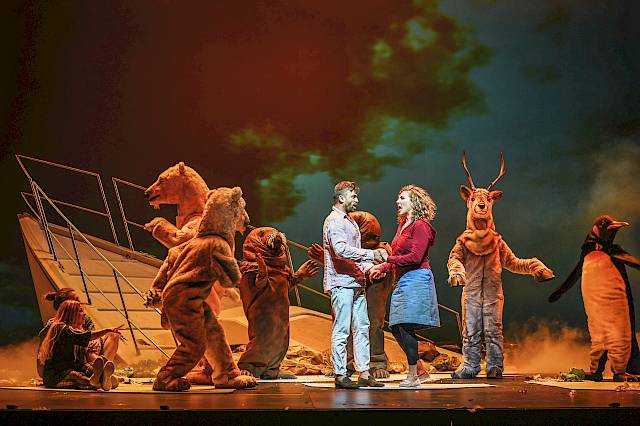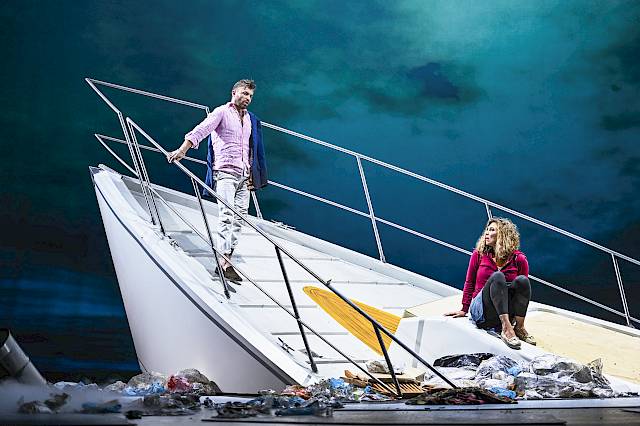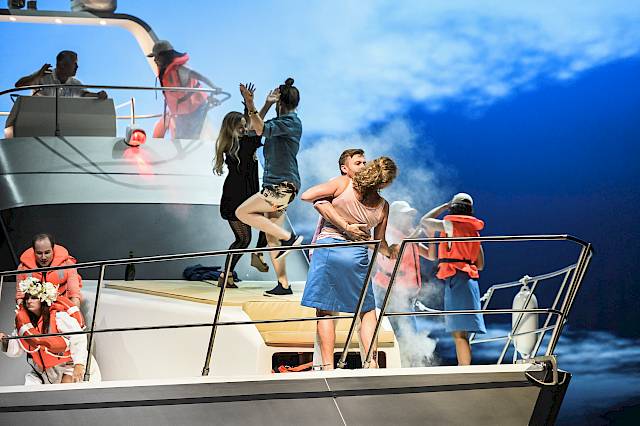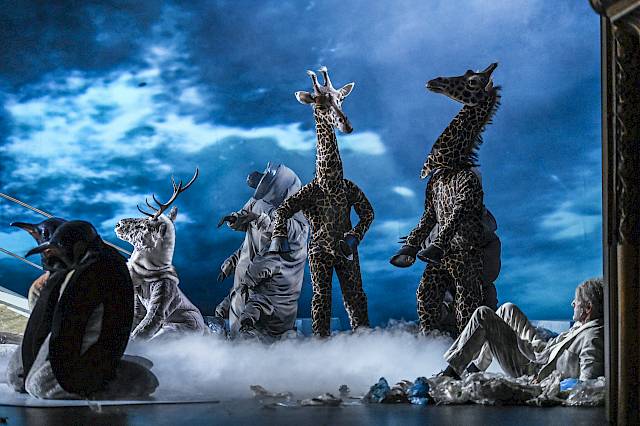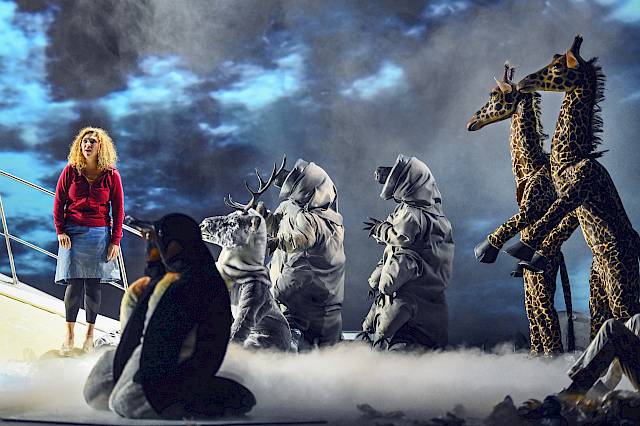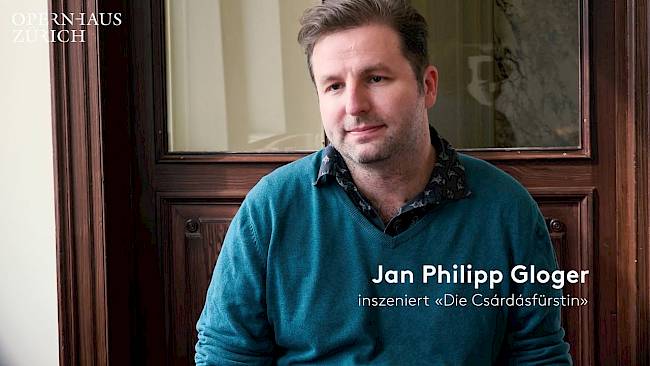ACT 1
Vaudeville singer Sylva Varescu is performing her famous folklore number, for which every-one adores her. Boni, who discovered Sylva, and his crony Feri are also thrilled. The two chums chat about her boyfriend, Prince Edwin, who has fallen passionately in love with Sylva despite already being married to a socially suitable wife, Stasi.
At a merry gentlemen’s get-together, Boni and Feri freely admit to their frivolous lifestyle and their relationship to women, the primary purpose of which is amusement.
Stasi lets her husband Edwin know that he must end the affair with the vaudeville singer this instant. Edwin, however, is not prepared to do so – for him, there is only Sylva. The singer herself tries to make it clear to Edwin that their love has no chance of fulfilment and that the only sensible thing for them to do is to separate. She tells him that this is to be their last evening together. Once more, they assure one another that great love exists – and that they have found it.
Boni doesn’t believe in love. He resolves never to look at another girl, but he also knows that he’ll break that resolve at some point.
Before she leaves Edwin, Sylva wants to celebrate and drink champagne just one more time.
Edwin has arranged a spontaneous wedding ceremony: he intends to marry Sylva. They both sign a marriage contract. Sylva can’t believe her luck. Stasi suddenly bursts in on the scene and breaks up the celebration.
Stasi and Edwin are alone. She confronts him, asking him whether he really loves Sylva. Edwin denies that the affair with Sylva was a mere infatuation. He asks how their marriage should continue. Stasi replies: «It’ll be enough to stay together.» They imagine a life as a pair of faithful swallows cohabiting on a level that is above grand, amorous passions.
Boni and Sylva join them. An exuberant waltz is being danced. All four of them join in the whirl with the attitude that we only live once and that we must enjoy the here and now.
Feri is alone. He sings the couplet about Old Noah, the message of which is the importance of love when the world is coming to an end.
ACT 2
When Edwin and Sylva meet again, she tells him that she was unable to take the wedding cere-
mony he arranged seriously. Edwin and Sylva consider their relationship to be over and agree to remain good friends. They blissfully reminisce about the lovely times they have spent together.
Boni and Stasi become closer and find that they are well suited to one another – that’s what stupid love does.
Edwin and Sylva discover Boni and Stasi together and suddenly see new hope for their love. They are happy.
Edwin’s father, the Prince of Lippert-Weylersheim, appears. Edwin declares to him that his heart beats for Sylva alone. His father is outraged that his son has become involved with a person of inferior status.
Sylva shows the Prince the marriage contract signed by Edwin and declares that she is indeed a lady of rank, namely a Princess Weylersheim. However, as she senses that the princely family is ashamed of her, she tears up the contract with the intention of remaining a «cabaret singer».
Feri also believes that Sylva should continue to work in vaudeville. Together with Boni, he persuades her to dance a fire csardas – for “How do we know how long the world will turn, whether tomorrow isn’t already too late.”
Edwin stands by Sylva and returns to her, against his father’s will.
The couples are happily united.




